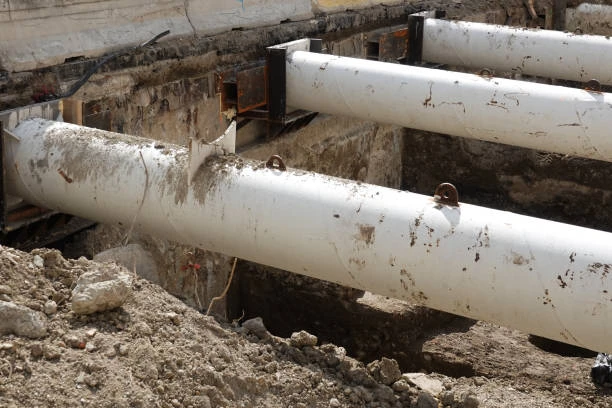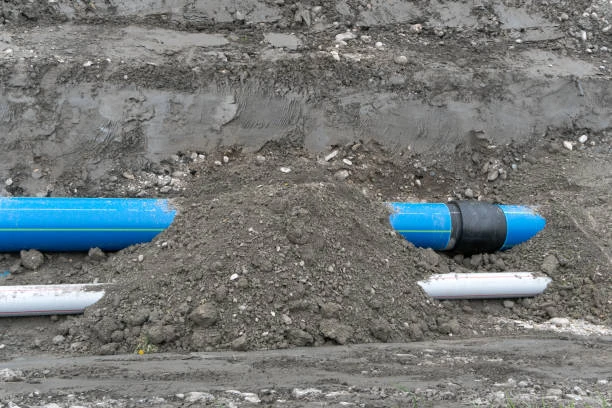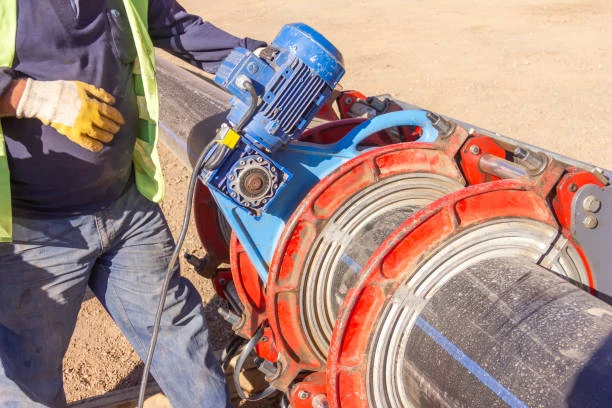Water pipe The safety of drinking water is a fundamental concern for every community, as it directly impacts public health and well-being. In the City of Belton, local authorities are undertaking a critical initiative to test the safety and integrity of the community’s water pipes. This proactive step is part of a broader strategy to ensure that residents have access to clean, safe water and that potential risks from aging infrastructure are mitigated.
In this article, we will explore the importance of water pipe safety, the testing process in Belton, and the measures being taken to ensure that the community’s water supply remains reliable and secure. We will also provide insights into how water pipeline issues are addressed, why regular testing is essential, and how homeowners can play a role in maintaining water safety.

Why is Water Pipe Safety Important?
Water pipe safety is a critical concern for any municipality because the integrity of a city’s water infrastructure determines the quality of the drinking water supply. A safe and efficient water pipe system is essential for:
1.Water pipe Providing Clean Drinking Water
The primary function of water pipes is to transport clean water from treatment plants to homes and businesses. If water pipes are compromised, contaminated water can enter the distribution system, putting the health of the entire community at risk. Leaks, corrosion, or damage to water pipes can introduce harmful pathogens and pollutants into the water supply, leading to health issues.
2. Water pipe Preventing Water Waste
Leaking pipes can lead to significant water loss, wasting a valuable resource. Water wastage due to pipe leaks not only increases the costs for consumers but also puts unnecessary strain on local water supplies, especially during droughts or periods of water scarcity.
3. Water pipe Ensuring Consistent Water Supply
A well-maintained water pipe system is crucial for providing a reliable and consistent supply of water to residents and businesses. Issues like low water pressure, disruptions in service, or even complete outages can occur if water pipes fail. This can disrupt daily life, from cooking and cleaning to industrial processes and firefighting capabilities.
4.Water pipe Protecting Property
Burst or leaking water pipes can lead to flooding, causing property damage and increasing the risk of mold and mildew growth. Homeowners may face significant repair costs if their plumbing systems are compromised. Ensuring the safety and reliability of water pipes helps prevent these types of disasters.
5.Water pipe Avoiding Costly Repairs
Proactive testing and maintenance of water pipes can help identify small problems before they become major issues. By addressing potential vulnerabilities early on, municipalities can save significant amounts of money in repairs and infrastructure replacement costs.
The City of Belton’s Water Pipe Safety Testing Initiative
In response to growing concerns about water infrastructure, the City of Belton has launched a comprehensive program to assess the safety and functionality of its water pipes. The program includes a series of tests, inspections, and upgrades aimed at improving the city’s water distribution network. These efforts are part of the city’s long-term strategy to ensure that the community’s water supply is secure, efficient, and safe for all residents.
The Goals of the Water Pipe Testing Program
The City of Belton’s testing program aims to achieve several key objectives:
1.Water pipe Assess the Condition of Existing Water Pipes
One of the first steps in the initiative is to evaluate the current state of Belton’s water pipes. Many of the city’s pipes are decades old, and their condition can vary greatly. Some pipes may be showing signs of wear, corrosion, or damage that could lead to leaks or ruptures. Testing will help identify which pipes need immediate attention and which are still in good condition.
2. Detect Contaminants in the Water Supply
Another crucial part of the testing process is monitoring for contaminants in the water supply. Contaminants such as bacteria, lead, and other harmful chemicals can leach into the water supply through damaged or aging pipes. Regular water quality testing ensures that any potential threats to the public’s health are detected and addressed promptly.
3. Evaluate Water Pressure and Flow Rates
The City of Belton is also examining the pressure and flow rates within the water distribution system. Uneven pressure can cause issues with water delivery and affect the overall performance of the system. Low pressure or insufficient water flow can be signs of clogged or damaged pipes, while high pressure can place undue stress on older infrastructure, increasing the likelihood of bursts or leaks.
4. Develop a Long-Term Water Infrastructure Plan
By gathering data from the testing process, Belton officials will be able to make informed decisions about future investments in the city’s water infrastructure. Whether that means replacing aging pipes, upgrading to more durable materials, or improving water treatment facilities, the data will be used to develop a sustainable plan for the future of Belton’s water system.
5. Enhance Public Safety
The ultimate goal of the water pipe testing initiative is to enhance public safety by ensuring that Belton’s drinking water remains clean, safe, and free from contamination. Preventing future waterborne illnesses and reducing the risks of water supply interruptions are key components of this initiative.
How Water Pipe Testing Works
Water pipe testing is a systematic process that involves several methods to assess the integrity and quality of the water distribution system. Here’s a breakdown of how the testing process works in the City of Belton:
1. Visual Inspections and Surveys
The first step in the testing process is conducting visual inspections of the water pipes, especially in areas that have had previous issues or where the pipes are older. Inspectors look for signs of physical damage, such as cracks, rust, or corrosion, and check for visible leaks or pooling water.
2. Water Quality Testing
Samples of water from different points in the city’s water system are collected and analyzed for contaminants. This includes testing for common pollutants, such as lead, chlorine levels, bacteria, and heavy metals. The water quality tests ensure that the water meets the required safety standards and is safe to drink.
3. Pressure Testing
Pressure testing involves measuring the water pressure in different parts of the system to ensure it is within acceptable limits. Low pressure can indicate blockages or leaks, while high pressure can put stress on the pipes, leading to potential damage or bursts.
4. Flow Rate Tests
Flow rate testing measures how quickly water moves through the pipes. This is important because any significant reductions in flow rate can indicate that there is an issue in the pipes, such as a blockage, build-up of minerals, or a collapsed section of the pipeline.
5. Leak Detection Technology
Modern technology allows for the detection of leaks and weak spots in water pipes that are not immediately visible. Tools such as acoustic sensors, smart meters, and fiber-optic cables can be used to detect small leaks or areas of the system under stress, allowing for early intervention.
The Benefits of Regular Water Pipe Testing
Regular water pipe testing offers numerous benefits for communities like Belton. Some of the key advantages include:
1. Improved Public Health
By regularly testing for contaminants and ensuring the safety of the water supply, public health is protected. Waterborne diseases and illnesses can be prevented, ensuring the well-being of the community.
2. Reduced Repair Costs
Proactively identifying problems before they escalate into larger issues reduces the cost of repairs. By addressing minor leaks and signs of corrosion early on, municipalities can avoid the significant costs associated with major water pipe replacements and emergency repairs.
3. Minimized Water Waste
Early detection of leaks and inefficiencies helps minimize water waste. This is particularly important in regions facing water scarcity, as every drop counts. Testing ensures that the system is operating at peak efficiency, reducing water loss.
4. Better Resource Management
With accurate data from regular water pipe testing, the City of Belton can make more informed decisions about resource allocation. Whether it’s budgeting for repairs or deciding where to prioritize upgrades, testing data provides the information needed to make sound decisions.
5. Enhanced Community Confidence
When residents know that their local government is committed to maintaining the safety and reliability of the water supply, it builds trust and confidence in the system. Regular testing and transparency about water safety provide peace of mind for all involved.
How Can Homeowners Contribute to Water Pipe Safety?
While municipal authorities play a key role in maintaining public water infrastructure, homeowners also have an important part to play in ensuring the safety and longevity of their own water pipes. Here are a few ways homeowners can contribute:
1. Schedule Regular Plumbing Inspections
Homeowners should have their plumbing systems inspected regularly to identify potential issues like leaks, corrosion, or damaged pipes that could impact the water supply.
2. Install Water Pressure Regulators
Installing a water pressure regulator can help ensure that the water pressure in your home stays within safe limits, protecting your pipes from damage caused by excessive pressure.
3. Be Mindful of Water Usage
Reducing water waste through responsible usage can help alleviate stress on the local water system and reduce the risk of damage caused by overuse or poor infrastructure.
4. Report Issues Promptly
If you notice any signs of water leakage, low pressure, or discoloration in your water supply, report it to the city authorities as soon as possible. Quick identification of problems can help prevent larger-scale issues.
Conclusion
The City of Belton’s initiative to test the safety of community water pipes is a proactive step toward ensuring that residents have access to safe, clean water. Regular water pipe testing and maintenance are essential for preventing contamination, reducing water waste, and protecting public health. By addressing potential issues early and investing in infrastructure improvements, Belton can ensure the continued reliability of its water supply for years to come.
Frequently Asked Questions (FAQs)
1. Why is the City of Belton testing its water pipes?
The City of Belton is testing its water pipes to ensure that the water supply is safe, clean, and free of contaminants. Regular testing helps detect leaks, corrosion, and other issues before they become major problems.
2. How often should water pipes be test?
Water pipes should be test regularly, typically every few years, or when signs of problems, such as leaks or low water pressure, arise. Municipalities like Belton will also test their systems as part of routine maintenance.
3. Can homeowners test their own water pipes?
Homeowners can perform basic checks, such as inspecting for leaks and low water pressure, but water quality tests and detailed inspections should be carry out by professionals.
4. What are the signs of a burst water pipe?
Common signs of a burst water pipe include low water pressure, discolored water, or the sound of running water when no faucets are on. Water damage in the home is also a clear indicator of a burst pipe.
5. How can I report a water pipe issue in Belton?
Residents should contact the City of Belton’s public works or water department to report any issues with the water system, such as leaks, low pressure, or water discoloration. Prompt reporting helps minimize damage and disruptions.


















